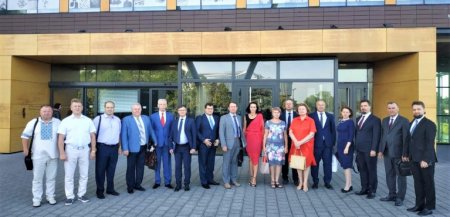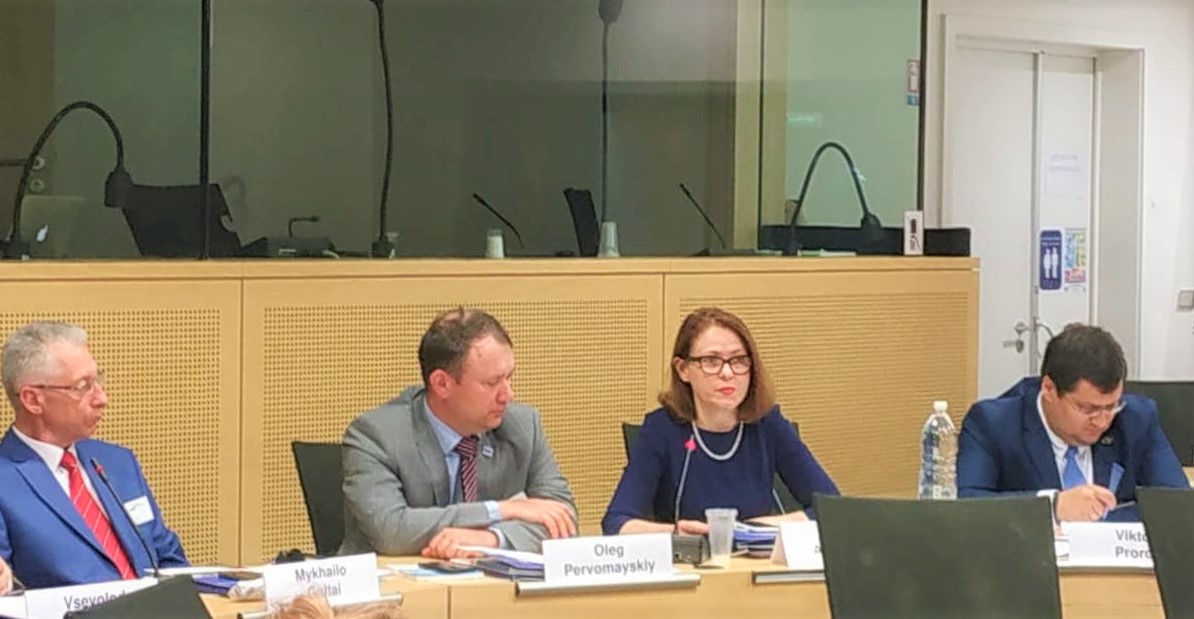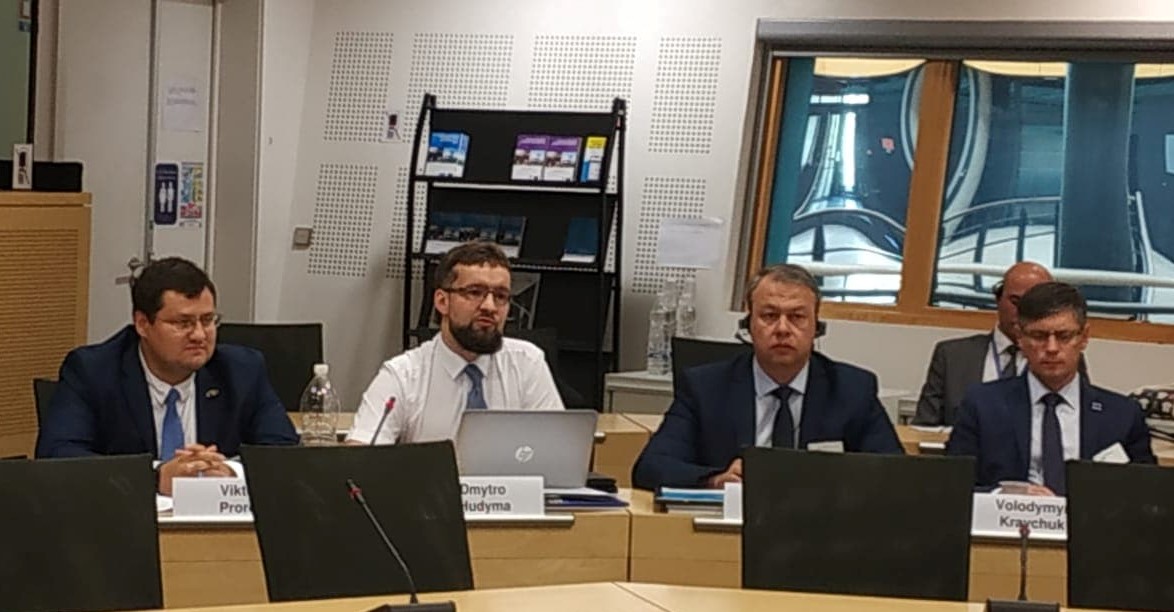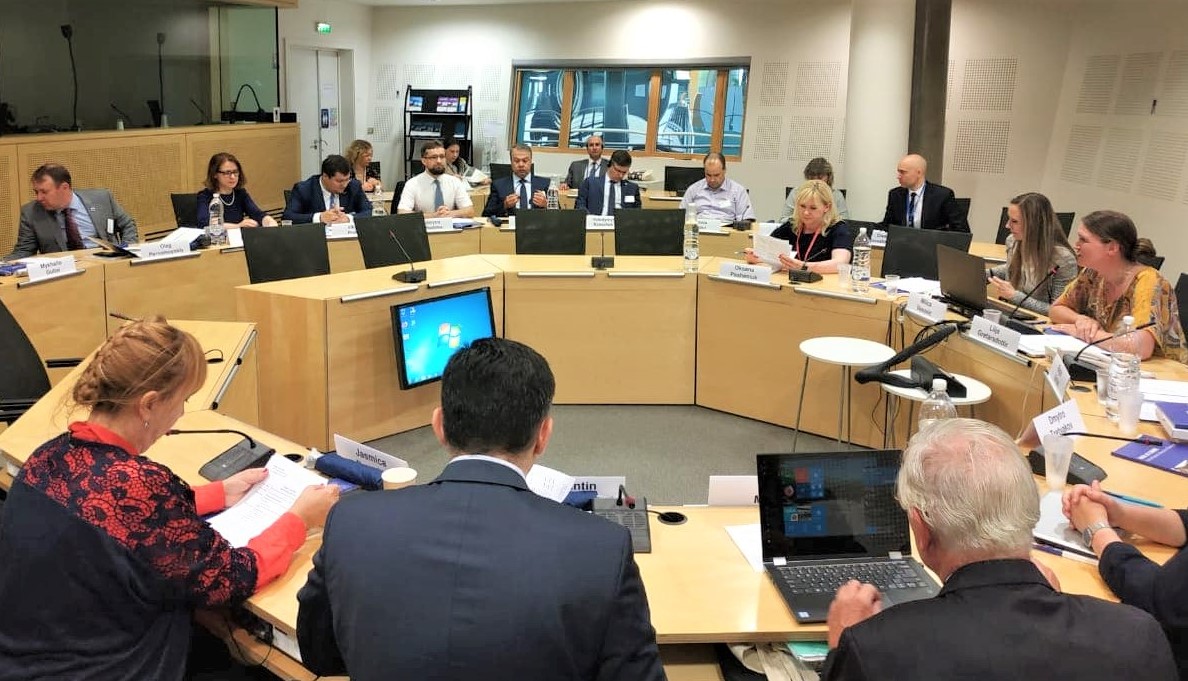Contact center of the Ukrainian Judiciary 044 207-35-46

Representatives of the judiciary, particularly, the Supreme Court, the National School of Judges of Ukraine have an introductory visit to institutions of the Council of Europe (Strasbourg, France). The event, taking place on 9 and 10 July, is organized by the Council of Europe Project “Internal Displacement in Ukraine: Building Solutions”.
While this visit representatives of Ukrainian delegation will have opportunity to familiarize with the activity of the CoE bodies, to discuss ways of strengthening the implementation of the CoE standards regarding internal displacement into national case law and to be present at hearing of the Grand Chamber of the European Court of Human Rights in the case Brother Watch and Others v. the United Kingdom.
While discussing the topic “Council of Europe standards on internal displacement”, Régis Brillat, the Special Advisor to Council of Europe's Secretary General for Ukraine, remarked that Ukraine as the CoE member state was fully committed to all noted standards.
Vsevolod Kniaziev, the Secretary of the Grand Chamber of the Supreme Court, informed European partners that the SC considered a range of cases on the protection of political, labour, social and tax rights of internally displaced persons.
Mr. Kniaziev emphasized that Ukraine’s position regarding its territorial integrity and the necessity of renewal of the control over temporarily occupied territories was clear and unchanged.
The SC GC judge Viktor Prorok is sure that close cooperation between Ukrainian judicial bodies and the CoE institutions, particularly, the ECHR was the key to the formation of effective legal approaches to the protection of human rights at national level.
The judge noted that the participation in the CoE events within the project regarding the development of the solution of the internally displaced persons’ issue would promote the Supreme Court in the elaboration of legal approaches as for the protection of rights of individuals, who had suffered from continued armed aggression of the Russian Federation against Ukraine.
According to Tetiana Antsupova, judge of the SC Grand Chamber, the specified topic is very sensitive, and active professional and public discussions are being held as for it.
The judge noted that the cooperation with the Council of Europe Project “Internal Displacement in Ukraine: Building Solutions” was necessary and mutually beneficial for the search of solutions to complicated legal issues of the protection of IDP’s property and political rights.

In Dmytro’s Hudyma, judge of the SC Grand Chamber, opinion, the discussion of mechanisms of internally displaced persons’ rights protection within this visit has a great importance, especially for judges of the SC Grand Chamber, which is considering a case on the compensation of damage caused by a terrorist act.
Mykola Himon, judge of the Administrative Cassation Court within the Supreme Court, is convinced that other state’s experience of solving similar issues accumulated by the Council of Europe is very important and useful for Ukraine and its state institutions. The exchange of such experience will promote the effective solution of these issues, particularly, by means of solving certain disputes by courts.
Volodymyr Kravchuk, judge of the Administrative Cassation Court within the Supreme Court, emphasized that the global experience of the protection of internally displaced persons and those, who suffered from armed conflicts, was very important for Ukraine.
The judge noted that the Supreme Court had approached to the consideration of such cases. Taking into account the existent world approaches to the solution of those issues would let the SC adopt fair judgments.
Issues of IDP’s rights protection cover a range of current and very complicated problems and concern different jurisdictions – civil, administrative, commercial and even criminal.
Mykola Mazur, judge of the Criminal Cassation Court within the Supreme Court, remarked that for obvious reasons, in 2014 the domestic law had not included relevant norms, which would provide effective consideration of cases related to the conflict on the East of Ukraine and Crimea. Unfortunately, presently, some issues had not been settled at legislative level. Thus, the formation of relevant mechanisms of protecting rights persons, who had suffered from the conflict, in many cases had taken place due to case law. Some issue had already been settled, other ones still needed to be solved. Therefore, that meeting with the Council of Europe experts was very important.
While discussing the topic “Council of Europe standards on internal displacement”, the participants, particularly, have analyzed the ECHR case law.

Thus, Pavlo Pushkar, the Head of Division of the Department for the Execution of Judgments of the European Court of Human Rights of the CoE Directorate General Human Rights and Rule of Law, informed that the CoE Committee of Ministers had positively assessed the practice of the SC Grand Chamber and the Constitutional Court of Ukraine regarding the coordination of efforts of Ukrainian authorities in terms of the EHCR opinions in case Burmych v. Ukraine.
Dmytro Tretiakov, lawyer of the Secretariat of the European Court of Human Rights familiarized the discussion participants with the ECHR judgments in cases Ilgar Mammadov v. Azerbaijan, Nicolae Virgiliu Tănase v. Romania, Moldavska v. Ukraine, Chernega v. Ukraine, Vira Dovzhenko V. Ukraine, Editorial Board of Grivna Newspaper V. Ukraine, etc.
Pursuant to him, amongst 8 thousand cases against Ukraine pending at the ECHR, about 5 thousand are related to the armed conflict on its territory. However, the consideration of these cases is temporary “frozen” till the solution of the interstate case Ukraine v. Russia.
Hanna Yudkivska, judge of the European Court of Human Rights, drew attention to the fact that the ECHR had published its judgment in the case Volodina v. Russia (Application No. 41261/17) as for the protection of domestic violence victims’ rights.
Besides, the judge analyzed the decision in case Svit Rozvag, TOV and Others v. Ukraine as for the violation of proprietary right of a gambling establishment, which had purchased state license for gambling business and had been deprived from the possibility to realize the relevant right due to the prohibition of gambling business.
Besides, according to the judge, the ECHR is considering applications against Ukraine as for events on Maidan, the procedure of lustration and dismissal of judges of the Constitutional Court of Ukraine.
